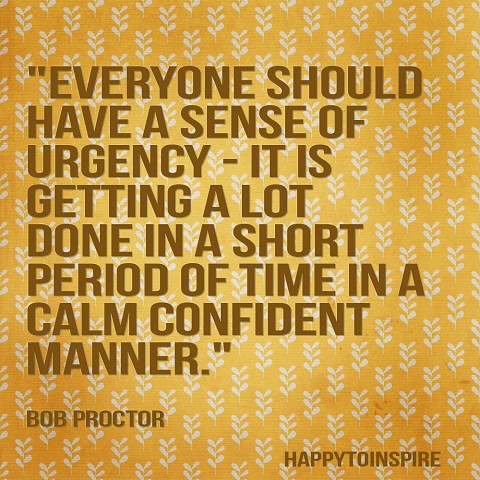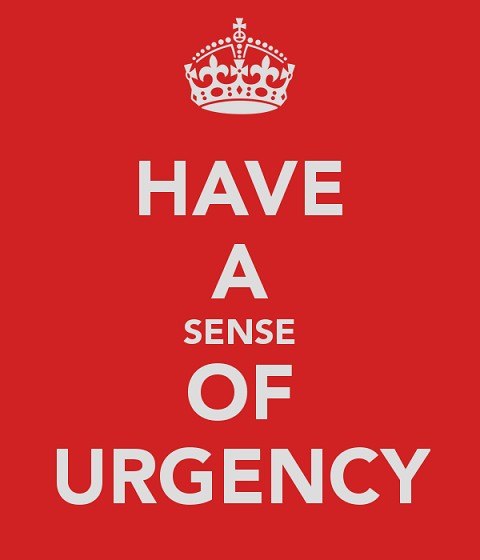It All Starts With…
Do you have a sense of urgency? Should you? You decide.
 Exhibit A:
Exhibit A:
In business and startups, a “sense of urgency” is a good thing. Yet many entrepreneurs confuse this with a “sense of emergency,” which insidiously saps the life from their business. – John Kotter
I’m not a big feeler, but the idea of insidiously sapping the life out of anything sounds painful and exhausting. And Dr. Kotter seems to know a thing—or 8—about leading change.
Exhibit B:
It is rare to find large companies that truly have a sense of urgency. Their circumstances rarely demand it. They can continue with business-as-usual and do pretty well. Nothing has to be done today or even this week. Nothing is really at stake—or so they think. Often, by the time they wake up, it’s too late. – Michael Hyatt
I wouldn’t say that Adventures is a large company, but I’m also not interested in falling into the “too late” category, regardless of our size.
 Exhibit C:
Exhibit C:
Your greatest tool for maintaining urgency is the knowledge that “urgency leads to success leads to complacency.” – John Kotter
“Complacency,” taken from the Weston Belkot dictionary, means “unfulfilling, undesirable, unwanted, and other words that start with ‘un’.”
Same questions: Do you have a sense of urgency? Should you? If you answered “yes” to either of those, you should read how right here. If you answered “no” to both of those, Eleanor has something to share with you.
For those in the in the former group, what are some suggestions you have for ways that others can create a sense of urgency in their teams?
